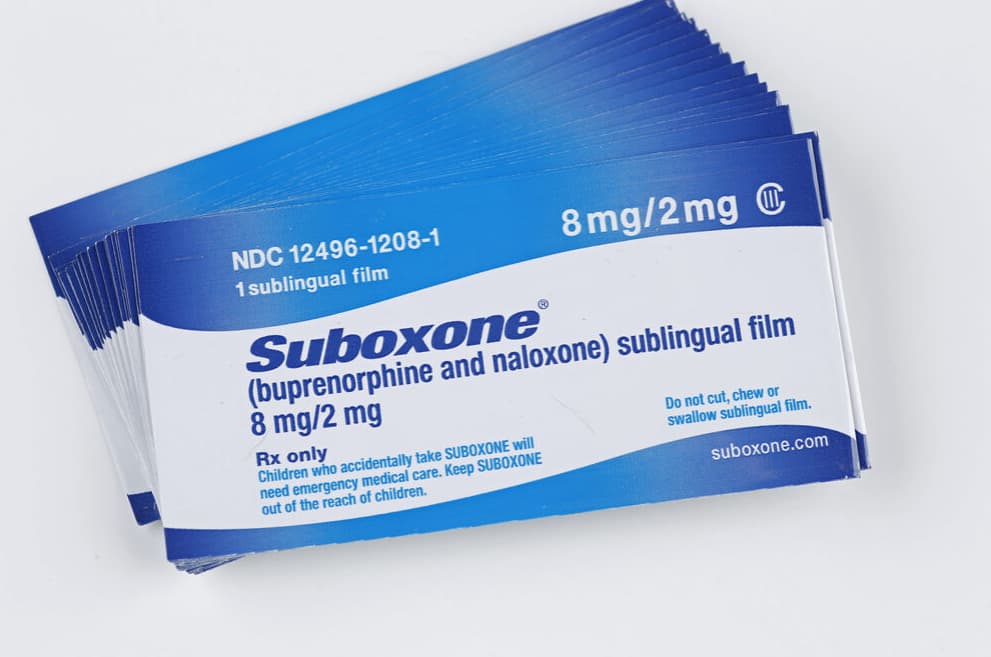If you or a loved one have used the dissolvable film version of Suboxone to treat opioid addiction and suffered tooth decay or other serious dental problems, you may be entitled to significant compensation.
In this article, we’ll cover everything you need to know about the latest Suboxone lawsuits, including who qualifies, how to join, what’s involved in the process, and the latest updates on the litigation as of 2024.
Suboxone Tooth Decay Lawsuits

Suboxone is a prescription medication used to treat opioid addiction. It comes in both tablet and dissolvable film form. In recent years, an alarming number of patients using the dissolvable film have reported experiencing severe tooth decay, gum disease, infections, and even tooth loss.
Now, the makers of Suboxone are facing a wave of lawsuits alleging that they knew about these risks but failed to properly warn patients and doctors.
These new Suboxone lawsuits are completely separate from previous antitrust litigation and settlements involving the drug. If you suffered dental problems from using Suboxone film, you’ll need to take action to join these latest suits and pursue compensation, even if you were previously involved in the antitrust class action.
So let’s dive into the details of what’s going on with the Suboxone tooth decay lawsuits, who qualifies, and how you can get involved if you’ve been affected.
Latest Lawsuits for Suboxone: What’s Going On?
The story of litigation against Suboxone began over a decade ago, with antitrust lawsuits alleging that the drug makers engaged in anticompetitive conduct to maintain a monopoly as the patent on the tablet version was expiring.
The companies were accused of falsely disparaging the tablet as unsafe, incentivizing doctors to switch patients to the new film version, and filing sham petitions to delay generic competition. These suits resulted in class action settlements of $30 million for end payors (consumers) and $385 million for direct purchasers (wholesalers, pharmacies, etc.).
However, the newest litigation against Suboxone that began in 2023 is completely different. These lawsuits claim that the dissolvable film version of Suboxone can cause severe tooth decay and permanent dental damage, that the drug was inadequately tested for these risks, and that patients and doctors were not properly warned.
The lawsuits further allege that the manufacturers knew of the link between Suboxone film and tooth loss but ignored it, only adding warnings after the FDA required them to do so in 2022.
In November 2023, a motion was filed to consolidate these new Suboxone tooth decay lawsuits into multidistrict litigation (MDL) to be heard before a single federal judge for more efficient and consistent proceedings. In February 2024, this request was approved and the MDL was established.
Who Qualifies for the Suboxone Tooth Decay Lawsuits?
Generally, you may be eligible to file a Suboxone tooth decay lawsuit if you meet the following criteria:
- You were prescribed the dissolvable film version of Suboxone (not the tablet).
- You used the film for at least 6 months before developing dental problems.
- You experienced serious dental issues like cavities, infections, gum disease, or tooth loss.
- You had a history of good dental health and routine dental care before using Suboxone.
An attorney can best advise you on whether your specific situation qualifies you for a lawsuit. If you’re interested in learning more, you can fill out a form to get in touch with a lawyer handling these cases.
How to Join the Suboxone Tooth Decay Lawsuits?
The current Suboxone lawsuits over tooth decay are not class actions where you can simply submit a claim form. To pursue compensation, you’ll need to file your lawsuit with the help of an attorney.
After you hire a lawyer, they will file a complaint on your behalf detailing your Suboxone use, dental injuries, and the financial and personal impact on your life. Your case will then proceed through the legal process, which may involve:
- Filing various motions and documents with the court.
- The discovery process of gathering evidence.
- Depositions (formal interviews under oath).
- Consultation with dental and financial experts.
- Potential settlement negotiations.
- Bellwether (test) trials.
- A full jury trial if no settlement is reached.
With the establishment of the MDL in February 2024, a group of lead attorneys will now coordinate the pre-trial proceedings. Test cases known as bellwether trials may be selected to gauge how juries respond. The outcome of these trials can significantly influence potential settlement negotiations.
Cost of Hiring a Suboxone Lawyer
Most attorneys handling Suboxone tooth decay lawsuits work on contingency, meaning their fee is a percentage of your eventual settlement or jury award. You typically won’t need to pay anything upfront. If your case is not successful, you likely won’t owe any legal fees.
Potential Suboxone Lawsuit Settlement Amounts
It’s still too early to know if the Suboxone tooth decay lawsuits will succeed and result in settlements. Some law firms estimate that individual cases may potentially be worth $50,000 to $150,000 based on the extent of the damage and losses. However, there are no guarantees.
Compensation from a Suboxone tooth decay lawsuit could cover damages like:
- Costs of dental treatment
- Lost wages from time off work
- Physical pain and suffering
- Emotional distress
There have not yet been any global settlements or jury verdicts as of February 2024. The litigation is still in the early stages. If you’re interested in learning what an individual lawsuit could potentially be worth for you, you can get a free consultation with an attorney.
Defendants in the Suboxone Lawsuits
The companies being sued in the Suboxone tooth decay litigation include:
| Company Name | Role |
|---|---|
| Indivior | Makes and sells Suboxone (primary defendant) |
| Aquestive Therapeutics | Co-developed Suboxone film |
| Reckitt Benckiser | Former parent company of Indivior |
The lawsuits claim that these companies failed in their duty to consumers by not properly testing the drug, not warning of the tooth decay risks, and not updating the label once the risks were known until the FDA required it in 2022.
About Suboxone
Suboxone is an FDA-approved prescription medication used to treat opioid addiction (opioid use disorder). It contains two active ingredients:
- Buprenorphine – A partial opioid agonist that reduces cravings and withdrawal by activating opioid receptors in the brain, but with a much weaker effect than drugs like heroin or oxycodone.
- Naloxone – An opioid antagonist that blocks the effects of opioids and is included to prevent abuse.
Suboxone is notable for being the first opioid addiction medication that can be prescribed in a doctor’s office, making it much more accessible than drugs that require a special clinic. It comes in both tablet and dissolvable film formulations.
The film is placed either under the tongue or inside the cheek to dissolve. It has a low pH (high acidity) to maximize absorption of buprenorphine while minimizing naloxone. Reported side effects include:
- Tooth decay and damage
- Mouth sores
- Headaches
- Nausea
- Constipation
- Insomnia
- Excessive sweating
How Suboxone Causes Tooth Decay?
Research indicates that the high acidity of the Suboxone film is likely the culprit behind the alarming incidence of dental problems in patients. The film has a very low pH of around 3.4 when dissolved in water (7 is neutral, lower numbers are more acidic).
This is much more acidic than the normal pH of saliva, which is usually between 6.2 to 7.3. When the acidic drug is allowed to sit in the mouth and coat the teeth while dissolving, it can erode enamel, the protective outer layer of teeth. This leaves teeth more vulnerable to decay.
Preventing Suboxone Tooth Damage
According to the FDA, patients using Suboxone can take some precautions to minimize the risk of dental issues:
- After the film fully dissolves, swish water in your mouth and swallow to help neutralize acid.
- Wait at least an hour before brushing your teeth to avoid damaging enamel softened by acid.
- Have regular dental checkups every 6 months.
- Inform your dentist that you’re using Suboxone.
- Avoid acidic and sugary food and drinks.
- Stay hydrated with plenty of plain water.
If you’re just starting Suboxone, consult with your dentist proactively to develop a prevention plan and monitor your oral health closely.
Suboxone Recall?
As of February 2024, there has not been any recall of Suboxone related to tooth decay risks. The closest action was the FDA’s requirement in early 2022 for stronger dental side effect warnings to be added to the labeling and prescribing information for Suboxone and similar buprenorphine-containing drugs.
Should I Stop Taking Suboxone?
No patient should ever discontinue a prescribed medication without the oversight of their doctor. Abruptly quitting Suboxone can cause severe withdrawal symptoms and drastically increase the risk of relapse and overdose.
If you develop dental problems while using Suboxone, inform your doctor immediately. They can advise you on the best course of action for your recovery and health. You may be able to switch formulations, adjust your dose, or manage dental risks.
2024 Updates on Suboxone Tooth Decay Lawsuits
Here are the key events in the Suboxone tooth decay litigation thus far:
- January 2022 – FDA requires new dental warnings for Suboxone and similar drugs
- Throughout 2023 – Dozens of individual lawsuits were filed against Suboxone makers
- November 2023 – Motion to consolidate lawsuits into a multidistrict litigation (MDL)
- February 2024 – The MDL is approved and established in Ohio federal court
The number of lawsuits is expected to grow significantly now that the MDL has been established to streamline the legal process. The judge will likely select a handful of representative cases for early bellwether trials to assess the strength of the claims. The results of these trials will be crucial for any potential settlement negotiations.
FAQs:
- How do I know if I qualify for a Suboxone tooth decay lawsuit?
You may qualify if you used the film version of Suboxone for at least 6 months, suffered serious dental problems like decay or tooth loss, and had healthy teeth before starting the medication. An attorney can assess your eligibility.
- Can I still file a lawsuit if I took the tablet form of Suboxone?
No, the current lawsuits only involve the dissolvable film version of Suboxone. The tablets have not been linked to an increased risk of tooth decay.
- Will I need to pay upfront legal fees to join the Suboxone lawsuits?
No, most attorneys handling these lawsuits work on a contingency fee basis. They only get paid if you win a settlement or jury verdict, and their fee comes out of that compensation as a percentage.
- Will I have to go to court if I file a Suboxone lawsuit?
Not necessarily. Many cases are resolved through settlement negotiations before a courtroom trial. However, if a fair settlement cannot be reached, your lawyer may advise proceeding to argue your case before a jury.
- What if I can’t afford dental care for Suboxone tooth damage?
You may be able to find local dental clinics offering low-cost or sliding-scale treatment. There are also dental financing options like CareCredit. Document all of your dental bills and costs, as you may be able to recover these expenses if your Suboxone lawsuit is successful.
More Lawsuits:
Conclusion
If you suffered devastating tooth decay or dental damage after using Suboxone film to overcome opioid addiction, you are not alone.
Thousands of patients have reported similar experiences, and a wave of lawsuits is underway against the makers of Suboxone alleging that they knew of these risks but failed to adequately warn patients and doctors.
As of early 2024, these lawsuits have been consolidated into a multidistrict litigation (MDL) to streamline the legal process.
The coming months will be crucial as the first bellwether trials get underway and the strength of these claims is tested in court.
If you think you may qualify for a Suboxone tooth decay lawsuit, you can contact an attorney for a free consultation to learn more about your rights and legal options. While it’s still too soon to know the outcome of this litigation, you may be entitled to significant compensation.
In the meantime, if you’re currently using Suboxone, be proactive about your dental health. Follow the FDA’s guidance on minimizing tooth decay risks, see your dentist regularly, and consult with your prescribing doctor if you notice any concerning symptoms.
Your recovery and well-being are the top priority.



